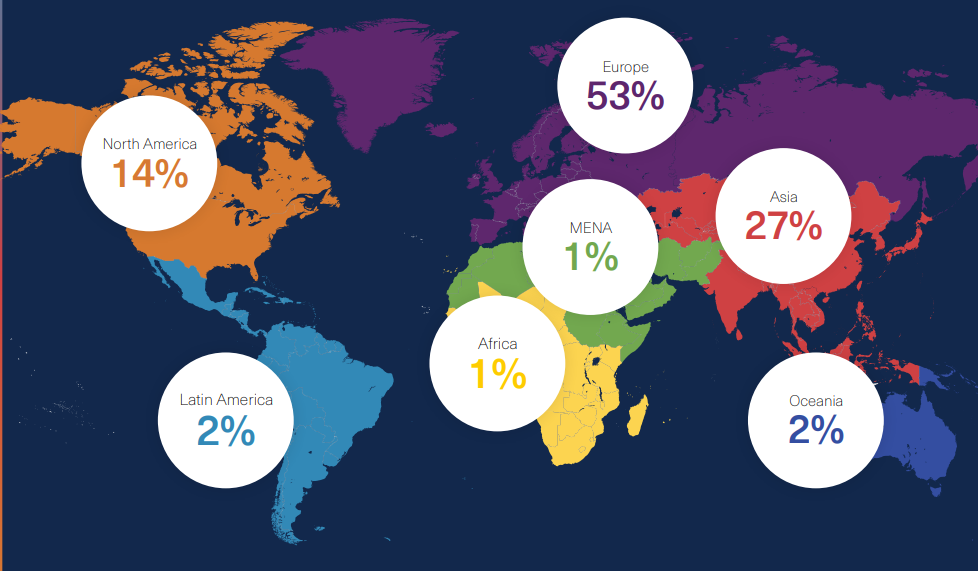The Science Based Targets initiative (SBTi) informs that the total number of companies with science-based targets increased by 102% during 2023 alone compared to all previous years, fuelled in part by strong growth in Asia, with 113% more companies set targetting during 2023 than in 2022.
According to the SBTi Monitoring Report 2023, companies with validated science-based targets or commitments to set targets reached 39% penetration of global market cap in 2023, 2 percentage points higher than in 2022, according to an analysis by Oliver Wyman, which also revealed that the global market cap of companies with targets or commitments grew 16%, compared to an estimated 11% global market cap growth overall (Analysis provided courtesy of Oliver Wyman using data from LSEG Datastream).
There was an 83% increase in the number of financial institutions and a 57% growth in the number of corporations with science-based targets by the end of 2023 compared to the end of 2022. And demonstrating the relevance of science-based targets to companies of all sizes, there was also major growth in the number of SMEs setting targets.
449 corporations set targets in line with the SBTi’s flagship Corporate Net-Zero Standard, which incorporates both ambitious near-term emissions reductions targets with a target of reducing emissions by at least 90% by 2050 at latest. This represented a 245% increase on 2022 figures.

The SBTi’s continued growth across key metrics including market cap penetration and global reach underscore the importance of its continued scale up operation and evolution to becoming a voluntary standard-setter, announced in September 2023.
The continued journey was boosted in June with the appointment of a Validation Council and the pending formation of a Board for the validation entity.
Growing across every metric – Asia
Japan becomes the world leader for science-based target setting with 768 validated companies in total, compared to 693 in the previous leader, the UK, and 465 in the US.
The most impressive proportional growth came from India, where the number of companies setting science-based targets in 2023 grew 520% from 15 to 93.

Regional changes
North America remains the region with the biggest market cap coverage of companies with science-based targets or commitments to setting them, with $22,957,095.00. Despite 16% growth of SBTi companies in absolute terms there, market penetration fell from 50% to 48% year on year. Penetration in all other regions grew 2-4 percentage points.
While the number of companies with science-based targets in the Middle East and North Africa remains low, there were encouraging signs from the Middle East and as the number of companies setting targets increased from two in 2022 to 11 in 2023, representing a 450% increase.
The deepening foothold of the SBTi in global markets demonstrates a growing understanding of companies of what is required of them to meet the aims of the Paris Agreement. We must now fight harder than ever to keep those aims alive, so I call on companies everywhere to set targets and make annual emissions disclosures as a matter of urgency.
… said SBTi’s CEO, Luiz Amaral
Trading places – industries invert in growth charts
Manufacturing and services accounted for 58% of companies setting targets in 2023. Biotech, healthcare and pharma was the lowest growth industry in 2022 and moved into first place in 2023 with a 222% increase in the total number of companies with validated targets. Materials, which had the highest proportional growth in 2022 moved into last place in terms of growth, from 160% in 2022 to 41% in 2023.

































































